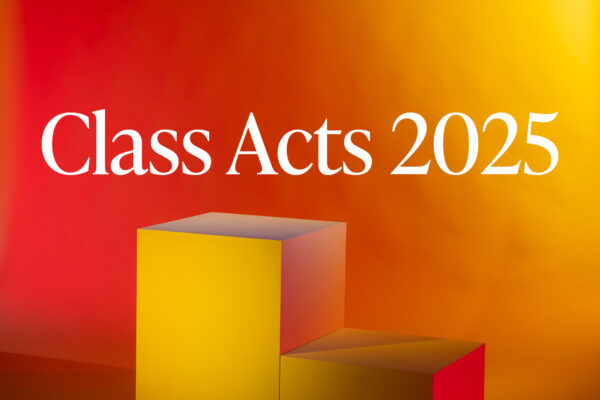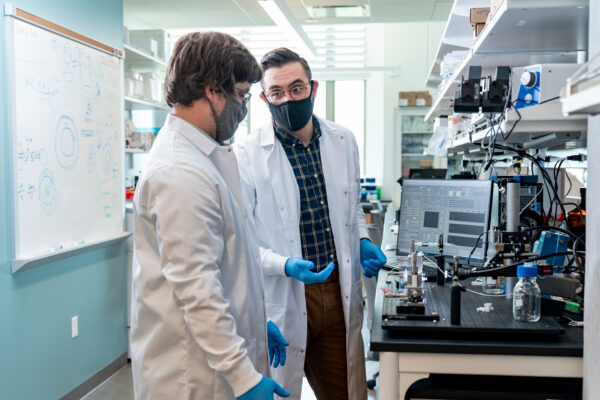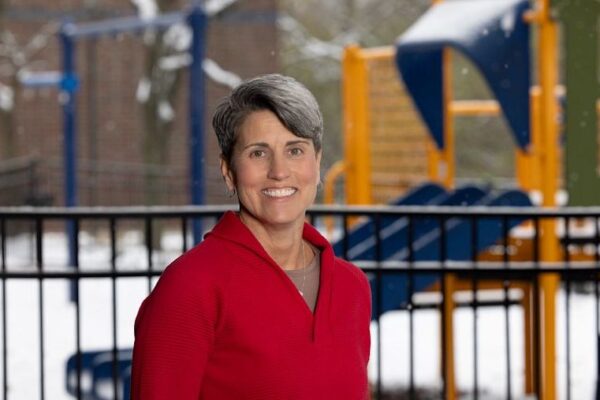Particle science can run big and small — there’s literally a whole world of air particles to chase and track, something that has occupied much of the PhD work of Joshin Kumar at the McKelvey School of Engineering at Washington University in St. Louis. His eyes were to the skies, looking at the particulates that factor into climate change and air pollution. But then his PhD adviser, Rajan Chakrabarty, a professor of energy, environmental and chemical engineering, pulled him into a much smaller world: detecting the airborne particles that make us sick.
That work resulted in cutting-edge science, a first-of-its kind biosensor that can detect airborne particles of avian flu and potentially much more.
Kumar is continuing at WashU, doing postdoctoral work in the Chakrabarty lab, looking to scale up this sensor technology to make it readily available to industry and individuals who want to quickly track airborne pathogens and other microbes.
What has shaped your sense of leadership at WashU?
My sense of leadership at WashU was profoundly shaped by Dr. Chakrabarty. He showed me that true leadership — especially in academia — isn’t about barking orders or micromanaging. It’s about giving people the tools, guidance and trust they need to shine.
When I was struggling with the biosensor, the people in Dr. Chakrabarty’s lab, including Dr. Meng (Max) Xu, really helped me figure out what was wrong. We improved it little bit by little bit. Watching Dr. Chakrabarty lead with patience and empathy taught me that emotional intelligence, or EQ, is just as critical as technical brilliance (IQ) when it comes to being a good leader. I’ve come to see leadership as building a supportive space where everyone can thrive. WashU’s whole vibe — how it rallies around its people during tough times — reflects this, too. It’s an environment shaped by great leaders, and I’ve been lucky to learn from it.
What has been the most valuable learning experience in your time here?
I was feeling down during my PhD work until I started taking better care of myself using the WashU Rec Center. Through gym workouts, swimming and long-distance running, I learned the power of discipline, consistency and dedication (especially discipline!). It started with pushing myself physically, but it spilled over into my PhD research and pretty much every part of my life. I realized that a healthy body and mind are the foundation for living your best life, and now I’m hooked. I find myself nudging everyone — my friends, family, girlfriend, even my PhD adviser — to get moving and take care of themselves. A healthy mind starts with a healthy body, and that’s something I’ll carry with me forever.
What do you hope to do next?
I’ve already jumped into my next chapter as a postdoctoral research associate here at WashU. My PhD was all about mastering the science — digging into atmospheric aerosols and their role in climate change. Now, as a postdoc, I’m shifting gears to bioaerosols and biosensing, while also learning the behind-the-scenes stuff: grant writing, mentoring students and exploring new research directions. My PhD taught me how to do science; my postdoc is about learning how to lead it. Ultimately, I want my human-centric research to make a dent in climate change and help stop pandemics in their tracks. That’s the big dream!


